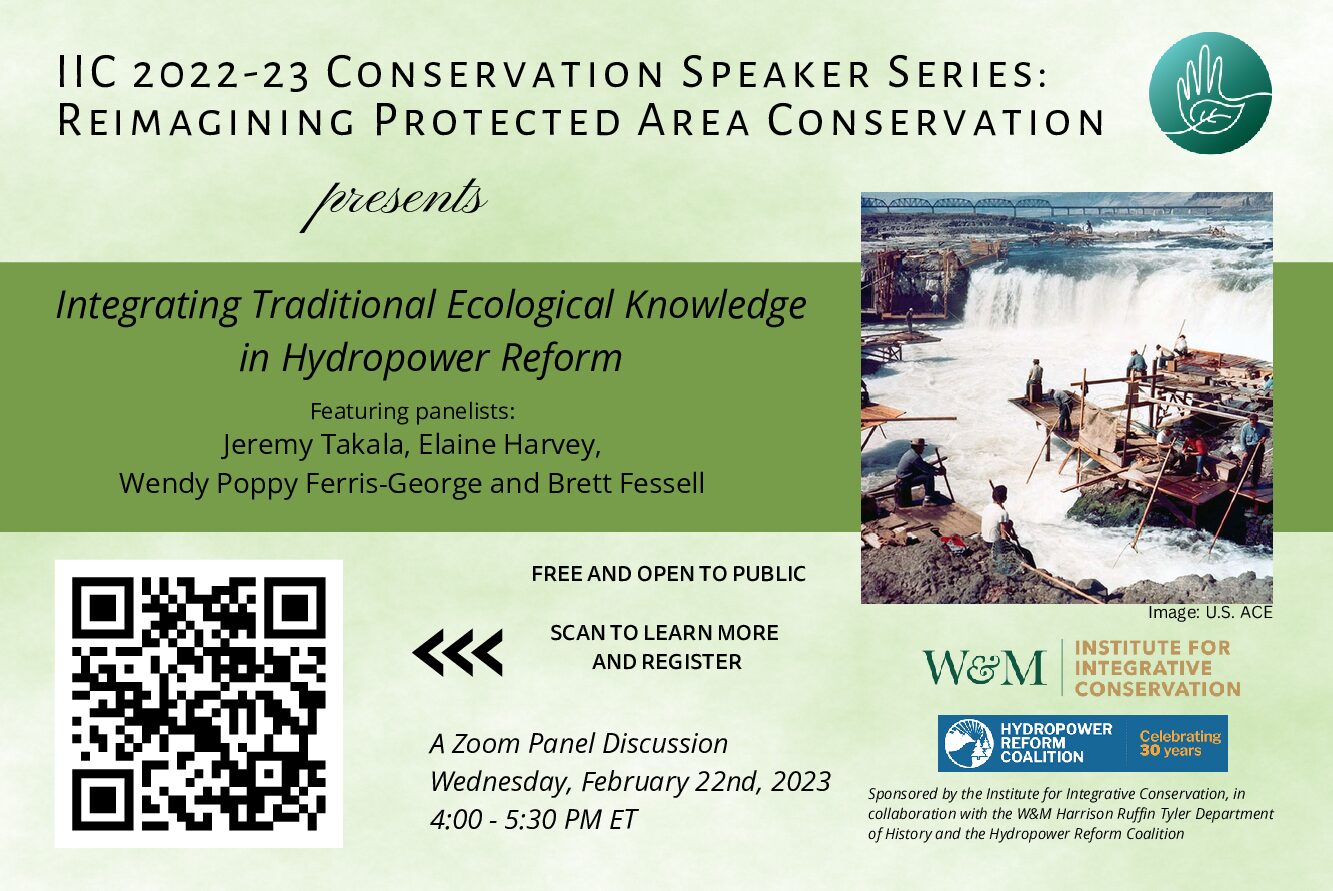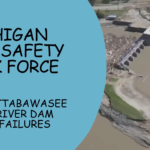The Hydropower Reform Coalition was proud to co-sponsor this webinar with William & Mary’s Institute for Integrative Conservation. HRC Associate National Director, Colleen McNally-Murphy, moderated this discussion with Andy Fisher, Associate Professor of History at W&M.
Panelists
- Jeremy Takala: Chair, Tribal Council Fish & Wildlife, Law & Order, and Legislative Committees (Yakama Nation, Kamiłtpah/Rock Creek Band)
- Elaine Harvey: Fisheries biologist, Hydrosystems Oversight and Environmental Coordinator (Yakama Nation, Kamiłtpah/Rock Creek Band)
- Wendy Poppy Ferris-George: MPS Cultural & Heritage Resource, Management Archaeologist and owner of Ferris Institute World Renewal non-profit (Enrolled Hupa, descendant of theKaruk, Chameriko and Yurok Tribes)
- Brett Fessell: Restoration Section Leader and River Ecologist Natural Resources Department Grand Traverse Band of Ottawa and Chippewa Indians
Topic
Conceptions of nature as separate from or in service to humans have influenced the designation, establishment and management of protected areas in the United States, including National Parks, Wilderness Areas, and rivers across the country. Some protected area designations have resulted in removal of Indigenous peoples or restrictions placed upon their access to place and resources. The licensing and management of hydropower projects across the country have also been influenced by these perspectives. The hydropower licensing process includes Tribal consultation, but separates cultural resource issues from environmental issues and is not designed to recognize the interconnectedness of culture and environment.
Innovative co-management models for some hydropower projects and protected area management plans prioritize Tribal concerns and perspectives, providing lessons for more just and sustainable decision-making.
In this panel, we heard from riparian and fisheries experts representing U.S. tribes on:
- How Indigenous understandings of land ownership, relationships, and conservation interact and conflict with the concept of humans as separate from nature
- How traditional knowledge can be better incorporated into riparian conservation and hydropower decision-making
- What approaches have worked to resolve, address, or mitigate the non-inclusive approaches to land and resource management, particularly related to hydropower


 HRC or member-contributed
HRC or member-contributed